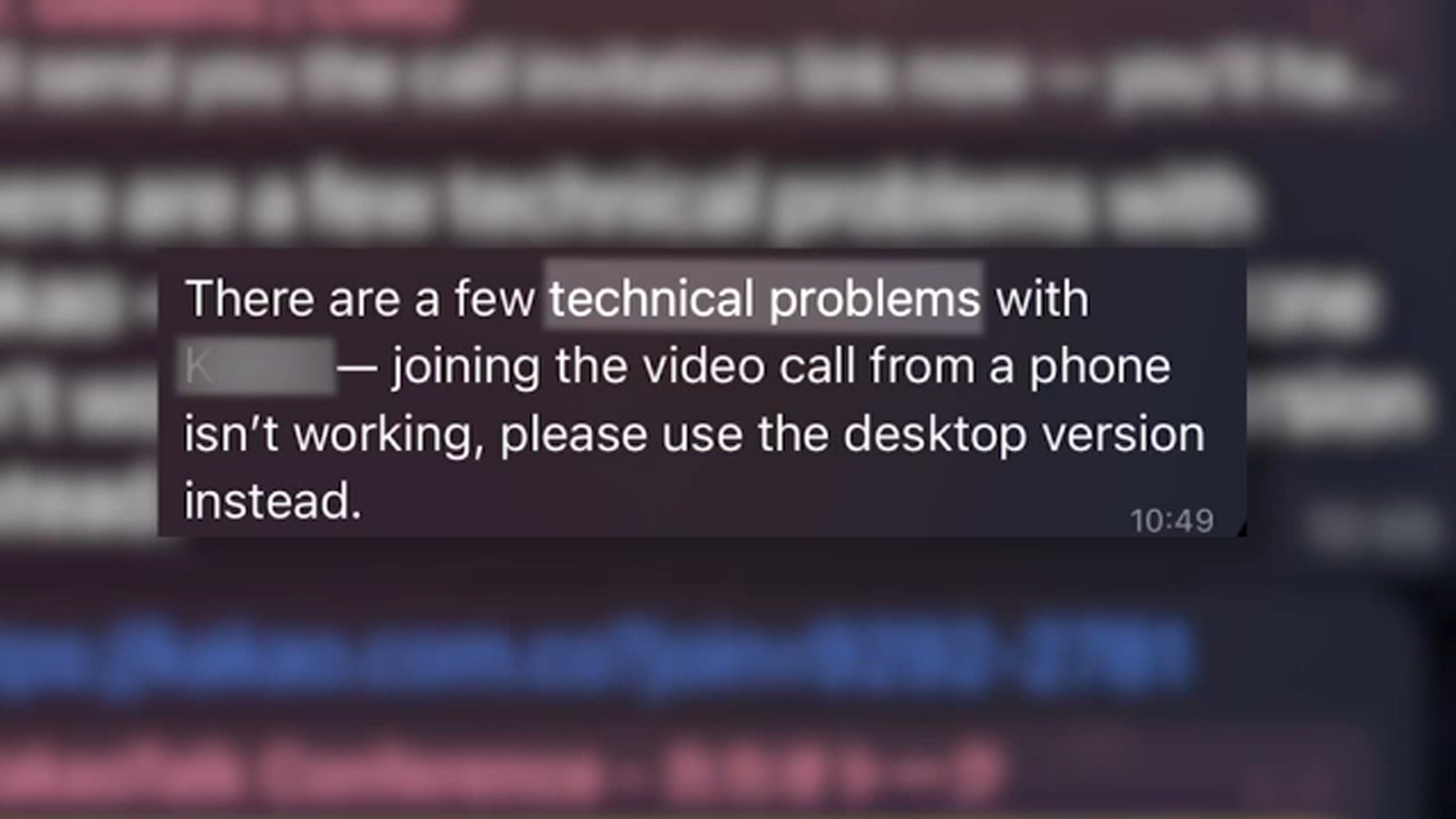North Carolina Man’s Crypto Account Drained of $80,000 After Clicking on Fake Virtual Meeting Link
DURHAM, NORTH CAROLINA — What began as an innocent online business meeting quickly turned into an $80,000 nightmare for a North Carolina man after scammers tricked him into installing malicious software on his computer.
Kenneth Nicholson, a Durham resident and cryptocurrency investor, said he was approached on social media by someone who appeared to share his interest in crypto. The conversation, which spanned several days, seemed legitimate — until it ended with a devastating scam that emptied his entire crypto account.
“I started to create videos about cryptocurrency and even launch my own exchange,” Nicholson said. “It’s not unusual for people to contact me wanting to talk about crypto.”
The Setup: A Fake Business Meeting Invitation
Nicholson said the scammers lured him in with detailed conversations about blockchain technology and investment strategies. After several days of back-and-forth messages, they asked to set up a virtual meeting to discuss potential collaboration.
Just minutes before the meeting, Nicholson received a message saying there were “technical problems” with the meeting platform. “The gentleman sent me a link to download software,” he recalled. “I clicked on it, and it opened on my terminal asking for my password.”
Believing it was part of the normal setup process, Nicholson entered his password — a move that would soon cost him everything.
The Moment He Realized It Was a Scam
Within seconds of downloading the file, Nicholson said he noticed strange code flashing across his screen. “The hairs on my neck started to raise,” he said. “I opened up the script and saw a lot of funky characters in there.”
Nicholson immediately turned off his Wi-Fi, disconnected his devices, and even stepped away from his desk, thinking he might have stopped the breach in time. But when he logged back in later, the damage had already been done.
“I had been signed out of all my accounts,” he said. “My money was drained.”
The scammer had gained full remote access to his computer and transferred $80,000 in cryptocurrency out of his account.
“It hit hard because I’ve never been scammed like this before — it was very targeted,” Nicholson admitted.

How the Scam Worked
Cybersecurity experts say Nicholson fell victim to a phishing and remote access attack, a tactic where scammers disguise malware as legitimate meeting software. Once the user grants permissions or enters their system password, hackers gain complete control over the computer and its stored data.
Nicholson later discovered that the fake link he clicked on wasn’t from a real meeting platform at all — it used a “.co” domain instead of “.com,” a common tactic used to mimic legitimate sites.
“This is how they trick you,” he said. “It looked so real, but one small letter made all the difference.”
Lessons and Warnings for Other Crypto Investors
Nicholson is now using his experience to warn others about online scams targeting the cryptocurrency community.
“A lot of times we make mistakes when we’re rushing,” he said. “Slow down when responding to messages. Go a little bit slower and cross your T’s and dot your I’s.”
He also cautioned against downloading software from unknown senders, even if the person seems trustworthy. “You have to treat every unexpected link like a threat,” he said. “It’s not worth the risk.”
Authorities Warn of Growing Crypto Fraud Cases
Law enforcement and cybersecurity experts have repeatedly warned about an uptick in crypto-related scams, especially those involving fake business meetings, romance scams, or investment opportunities.
The Federal Trade Commission (FTC) reports that Americans lost over $4 billion to cryptocurrency scams in 2023 alone — a number that continues to climb as digital currency adoption grows.
Common red flags include unsolicited contact through social media, pressure to act quickly, and links to unfamiliar websites or apps.
Nicholson’s story serves as a reminder that even tech-savvy users can be fooled by increasingly sophisticated scams. “It’s one of the risks you take in the crypto world,” he said. “But this one hit harder — because it was personal.”
For now, Nicholson hopes sharing his experience will help prevent others from falling victim. “If it can happen to me, it can happen to anyone,” he said. “Always double-check links — and never let your guard down.”
Stay alert and follow SaludaStandard-Sentinel.com for more consumer safety news and cybersecurity updates.







